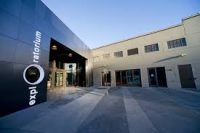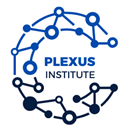[fusion_builder_container hundred_percent=”no” hundred_percent_height=”no” hundred_percent_height_scroll=”no” hundred_percent_height_center_content=”yes” equal_height_columns=”no” menu_anchor=”” hide_on_mobile=”small-visibility,medium-visibility,large-visibility” status=”published” publish_date=”” class=”” id=”” border_size=”” border_color=”” border_style=”solid” margin_top=”” margin_bottom=”” padding_top=”” padding_right=”” padding_bottom=”” padding_left=”” gradient_start_color=”” gradient_end_color=”” gradient_start_position=”0″ gradient_end_position=”100″ gradient_type=”linear” radial_direction=”center center” linear_angle=”180″ background_color=”” background_image=”” background_position=”center center” background_repeat=”no-repeat” fade=”no” background_parallax=”none” enable_mobile=”no” parallax_speed=”0.3″ background_blend_mode=”none” video_mp4=”” video_webm=”” video_ogv=”” video_url=”” video_aspect_ratio=”16:9″ video_loop=”yes” video_mute=”yes” video_preview_image=”” filter_hue=”0″ filter_saturation=”100″ filter_brightness=”100″ filter_contrast=”100″ filter_invert=”0″ filter_sepia=”0″ filter_opacity=”100″ filter_blur=”0″ filter_hue_hover=”0″ filter_saturation_hover=”100″ filter_brightness_hover=”100″ filter_contrast_hover=”100″ filter_invert_hover=”0″ filter_sepia_hover=”0″ filter_opacity_hover=”100″ filter_blur_hover=”0″][fusion_builder_row][fusion_builder_column type=”1_1″ layout=”1_1″ spacing=”” center_content=”no” link=”” target=”_self” min_height=”” hide_on_mobile=”small-visibility,medium-visibility,large-visibility” class=”” id=”” hover_type=”none” border_size=”0″ border_color=”” border_style=”solid” border_position=”all” border_radius=”” box_shadow=”no” dimension_box_shadow=”” box_shadow_blur=”0″ box_shadow_spread=”0″ box_shadow_color=”” box_shadow_style=”” padding_top=”” padding_right=”” padding_bottom=”” padding_left=”” margin_top=”” margin_bottom=”” background_type=”single” gradient_start_color=”” gradient_end_color=”” gradient_start_position=”0″ gradient_end_position=”100″ gradient_type=”linear” radial_direction=”center center” linear_angle=”180″ background_color=”” background_image=”” background_image_id=”” background_position=”left top” background_repeat=”no-repeat” background_blend_mode=”none” animation_type=”” animation_direction=”left” animation_speed=”0.3″ animation_offset=”” filter_type=”regular” filter_hue=”0″ filter_saturation=”100″ filter_brightness=”100″ filter_contrast=”100″ filter_invert=”0″ filter_sepia=”0″ filter_opacity=”100″ filter_blur=”0″ filter_hue_hover=”0″ filter_saturation_hover=”100″ filter_brightness_hover=”100″ filter_contrast_hover=”100″ filter_invert_hover=”0″ filter_sepia_hover=”0″ filter_opacity_hover=”100″ filter_blur_hover=”0″ last=”no”][fusion_title title_type=”text” rotation_effect=”bounceIn” display_time=”1200″ highlight_effect=”circle” loop_animation=”off” highlight_width=”9″ highlight_top_margin=”0″ before_text=”” rotation_text=”” highlight_text=”” after_text=”” hide_on_mobile=”small-visibility,medium-visibility,large-visibility” class=”” id=”” content_align=”center” size=”2″ font_size=”” animated_font_size=”” fusion_font_family_title_font=”” fusion_font_subset_title_font=”” fusion_font_variant_title_font=”” line_height=”” letter_spacing=”” margin_top=”” margin_bottom=”” margin_top_mobile=”” margin_bottom_mobile=”” text_color=”” animated_text_color=”” highlight_color=”” style_type=”none” sep_color=”” animation_type=”” animation_direction=”left” animation_speed=”0.3″ animation_offset=””]
It’s The Journey, Not the Destination
[/fusion_title][fusion_text columns=”” column_min_width=”” column_spacing=”” rule_style=”default” rule_size=”” rule_color=”” hide_on_mobile=”small-visibility,medium-visibility,large-visibility” class=”” id=”” animation_type=”” animation_direction=”left” animation_speed=”0.3″ animation_offset=””]
For more than five years now, I have been opening my classes, workshops, and presentations with “The Two Q’s.” I ask folks “What are the two questions that every human being is trying to answer – consciously or otherwise – every moment we are alive?” As I tell my audiences, their answers may not be the same as mine, and there is no right or wrong answer.
 In 1998, on a family trip to San Francisco, we visited the well-known science museum, The Exploratorium. The featured exhibition was called “Turbulent Landscapes,” and there were many works co-designed by artists and scientists. These interactive pieces demonstrated dynamics in nature that were complex or chaotic. From the laminar flow of complex planetary atmospheres, to the self-organized criticality of sand dunes. From the vortical flow of tornados, to the emergent patterns in particles subjected to sound frequencies.
In 1998, on a family trip to San Francisco, we visited the well-known science museum, The Exploratorium. The featured exhibition was called “Turbulent Landscapes,” and there were many works co-designed by artists and scientists. These interactive pieces demonstrated dynamics in nature that were complex or chaotic. From the laminar flow of complex planetary atmospheres, to the self-organized criticality of sand dunes. From the vortical flow of tornados, to the emergent patterns in particles subjected to sound frequencies.
On that day in 1998, I came to the Exploratorium with a mindset and work that was built on a foundation of presumed stability, predictability, and controllability. The challenges I was facing as I led a nationwide business process improvement initiative affecting 10,000 people could surely be solved with a bit more control. A clearer order from the top boss. An implied set of adverse consequences for not acting as directed.
But everything I knew on that day in 1998 did not address the reality I was facing in my work. The good news was that the literally life-changing experience I was about to have at the Turbulent Landscapes exhibition, introduced me to what the late radio commentator Paul Harvey used to call “the rest of the story.” Everything I knew was not wrong. It was simply an incomplete view of how many systems in nature, in business, in human life, really work. On that day, I learned about the dynamics of complexity.
My encounter with a large R.O.M.P. – a (seemingly, but nor really) Randomly Oscillating Magnetic Pendulum altered my consciousness. I saw then that there were very different dynamics at play in many aspects of human interaction. I set out to learn as much as I could, and to use my new knowledge to address the truly complex challenges I found in my work and life.
[/fusion_text][fusion_text columns=”” column_min_width=”” column_spacing=”” rule_style=”default” rule_size=”” rule_color=”” hide_on_mobile=”small-visibility,medium-visibility,large-visibility” class=”” id=”” animation_type=”” animation_direction=”left” animation_speed=”0.3″ animation_offset=””]
In the more than 20 years since that day, I have been remarkably fortunate to have met and learned from many of the leading thinkers, researchers, and practitioners in the field of complex human systems. As I have learned, I also began to put the learning to practice. How could I help a $3 billion a year grant-making agency dealing with the complex challenges of mental health and substance abuse, improve its work and results? How could I help doctoral students in school psychology who were already practicing professionals, to gain the awareness of and insights of complexity, to better help people? How could I help a highly dysfunctional non-profit board of an internationally-known organization, whose current leader used arrogance and conceit as a defense against admitting their own lack of ability?
Through these years, I have learned, taught, written about, and practiced a variety of methods built explicitly on insights from the study of complex human systems. And as we humans all do, I went through the phases of cognition, sense-making, discernment, hypothesis, action, assessment, and change. I learned that no matter how much I knew, and how good the framework or method to facilitate change, there were no guarantees when acting into complexity or chaos. And so today I look out into the world in a very different way than I did that day in 1998. I look into the world differently than I did five or ten years ago. We may not be able to fully or adequately discern whether we are engaging a fundamentally complicated situation, or a complex situation. We may not be able to discern the best way to act in the present, to improve our chances of achieving an intended future outcome. Today I see much less “either…or…” and instead, I see an almost constant “both…and…”
Today, the global Plexus Institute community is on this journey of learning, doing, and adapting. We share. We ponder. We inquire. We collaborate. We agree and disagree. We try, and we innovate. We learn how to more accurately map our worlds, even as we may need to reorient our compasses and seek a new path. As I noticed at a remarkable retreat on a mountain ridge in West Virginia ten years ago. . . “we journey alone, together.”
To see a video of a desktop R.O.M.P. – the thing that changed my life – click: https://youtu.be/H8UTIZNayyY
[/fusion_text][fusion_text columns=”” column_min_width=”” column_spacing=”” rule_style=”default” rule_size=”” rule_color=”” hide_on_mobile=”small-visibility,medium-visibility,large-visibility” class=”” id=”” animation_type=”” animation_direction=”left” animation_speed=”0.3″ animation_offset=””]
This post was contributed by Bruce Waltuck.
[/fusion_text][fusion_separator style_type=”default” hide_on_mobile=”small-visibility,medium-visibility,large-visibility” class=”” id=”” sep_color=”#a8a6a6″ top_margin=”25″ bottom_margin=”” border_size=”” icon=”” icon_circle=”” icon_circle_color=”” width=”” alignment=”center” /][/fusion_builder_column][fusion_builder_column type=”1_2″ layout=”1_2″ spacing=”” center_content=”yes” link=”” target=”_self” min_height=”” hide_on_mobile=”small-visibility,medium-visibility,large-visibility” class=”” id=”” background_image_id=”” hover_type=”none” border_size=”0″ border_color=”#44444444″ border_style=”solid” border_position=”all” border_radius_top_left=”” border_radius_top_right=”” border_radius_bottom_right=”” border_radius_bottom_left=”” box_shadow=”no” box_shadow_vertical=”” box_shadow_horizontal=”” box_shadow_blur=”0″ box_shadow_spread=”0″ box_shadow_color=”” box_shadow_style=”” padding_top=”0″ padding_right=”” padding_bottom=”” padding_left=”” margin_top=”0″ margin_bottom=”0″ background_type=”single” gradient_start_color=”” gradient_end_color=”” gradient_start_position=”0″ gradient_end_position=”100″ gradient_type=”linear” radial_direction=”center center” linear_angle=”180″ background_color=”” background_image=”” background_position=”left top” background_repeat=”no-repeat” background_blend_mode=”none” animation_type=”” animation_direction=”left” animation_speed=”0.3″ animation_offset=”” filter_type=”regular” filter_hue=”0″ filter_saturation=”100″ filter_brightness=”100″ filter_contrast=”100″ filter_invert=”0″ filter_sepia=”0″ filter_opacity=”100″ filter_blur=”0″ filter_hue_hover=”0″ filter_saturation_hover=”100″ filter_brightness_hover=”100″ filter_contrast_hover=”100″ filter_invert_hover=”0″ filter_sepia_hover=”0″ filter_opacity_hover=”100″ filter_blur_hover=”0″ last=”no”][fusion_title title_type=”text” rotation_effect=”bounceIn” display_time=”1200″ highlight_effect=”circle” loop_animation=”off” highlight_width=”9″ highlight_top_margin=”0″ before_text=”” rotation_text=”” highlight_text=”” after_text=”” hide_on_mobile=”small-visibility,medium-visibility,large-visibility” class=”” id=”” content_align=”center” size=”3″ font_size=”” animated_font_size=”” fusion_font_family_title_font=”” fusion_font_subset_title_font=”” fusion_font_variant_title_font=”” line_height=”” letter_spacing=”” margin_top=”” margin_bottom=”” margin_top_mobile=”” margin_bottom_mobile=”” text_color=”” animated_text_color=”” highlight_color=”” style_type=”none” sep_color=”” animation_type=”” animation_direction=”left” animation_speed=”0.3″ animation_offset=””]
Featured Guests
[/fusion_title][fusion_text columns=”” column_min_width=”” column_spacing=”” rule_style=”default” rule_size=”” rule_color=”” hide_on_mobile=”small-visibility,medium-visibility,large-visibility” class=”” id=”” animation_type=”” animation_direction=”left” animation_speed=”0.3″ animation_offset=””]

Bruce Waltuck, MA, Complexity, Chaos, and Creativity is an adjunct professor at Kean University, School of Management and Marketing and a Member of the Board of Directors, The Plexus Institute. The presentation and discussion builds on the piece written by Bruce as part of the Catalyzing Stories Project, Buck The System: Sense-making and Acting Into Complexity at the United States Department of Labor.
[/fusion_text][fusion_separator style_type=”single solid” hide_on_mobile=”small-visibility,medium-visibility,large-visibility” class=”” id=”” sep_color=”#000000″ top_margin=”” bottom_margin=”” border_size=”0″ icon=”” icon_size=”” icon_circle=”” icon_circle_color=”” width=”” alignment=”center” /][fusion_text columns=”” column_min_width=”” column_spacing=”” s2id_autogen32=”” s2id_autogen32_search=”” rule_style=”default” rule_size=”” rule_color=”” hide_on_mobile=”small-visibility,medium-visibility,large-visibility” class=”” id=”” s2id_autogen33=”” s2id_autogen33_search=”” animation_type=”” animation_direction=”left” animation_speed=”0.3″ s2id_autogen34=”” s2id_autogen34_search=”” animation_offset=””]
Prucia Buscell, the series moderator, was formerly communications director at Plexus Institute and has written about complexity-inspired processes in health care, education and other fields. She is a former newspaper reporter and a freelance writer and editor.
[/fusion_text][/fusion_builder_column][fusion_builder_column type=”1_2″ layout=”1_2″ spacing=”” center_content=”yes” link=”” target=”_self” min_height=”” hide_on_mobile=”small-visibility,medium-visibility,large-visibility” class=”” id=”” background_image_id=”” hover_type=”none” border_size=”0″ border_color=”#44444444″ border_style=”solid” border_position=”all” border_radius_top_left=”” border_radius_top_right=”” border_radius_bottom_right=”” border_radius_bottom_left=”” box_shadow=”no” box_shadow_vertical=”” box_shadow_horizontal=”” box_shadow_blur=”0″ box_shadow_spread=”0″ box_shadow_color=”” box_shadow_style=”” padding_top=”0″ padding_right=”” padding_bottom=”” padding_left=”” margin_top=”0″ margin_bottom=”0″ background_type=”single” gradient_start_color=”” gradient_end_color=”” gradient_start_position=”0″ gradient_end_position=”100″ gradient_type=”linear” radial_direction=”center center” linear_angle=”180″ background_color=”” background_image=”” background_position=”left top” background_repeat=”no-repeat” background_blend_mode=”none” animation_type=”” animation_direction=”left” animation_speed=”0.3″ animation_offset=”” filter_type=”regular” filter_hue=”0″ filter_saturation=”100″ filter_brightness=”100″ filter_contrast=”100″ filter_invert=”0″ filter_sepia=”0″ filter_opacity=”100″ filter_blur=”0″ filter_hue_hover=”0″ filter_saturation_hover=”100″ filter_brightness_hover=”100″ filter_contrast_hover=”100″ filter_invert_hover=”0″ filter_sepia_hover=”0″ filter_opacity_hover=”100″ filter_blur_hover=”0″ last=”no”][fusion_title title_type=”text” rotation_effect=”bounceIn” display_time=”1200″ highlight_effect=”circle” loop_animation=”off” highlight_width=”9″ highlight_top_margin=”0″ before_text=”” rotation_text=”” highlight_text=”” after_text=”” hide_on_mobile=”small-visibility,medium-visibility,large-visibility” class=”” id=”” content_align=”center” size=”2″ font_size=”” animated_font_size=”” fusion_font_family_title_font=”” fusion_font_subset_title_font=”” fusion_font_variant_title_font=”” line_height=”” letter_spacing=”” margin_top=”” margin_bottom=”” margin_top_mobile=”” margin_bottom_mobile=”” text_color=”” animated_text_color=”” highlight_color=”” style_type=”none” sep_color=”” animation_type=”” animation_direction=”left” animation_speed=”0.3″ animation_offset=””]
Join a Catalyzing Conversation on
It’s The Journey, Not the Destination
[/fusion_title][fusion_text columns=”” column_min_width=”” column_spacing=”” rule_style=”default” rule_size=”” rule_color=”” hide_on_mobile=”small-visibility,medium-visibility,large-visibility” class=”” id=”” animation_type=”” animation_direction=”left” animation_speed=”0.3″ animation_offset=””]
Event Details
When: Monday. March 30, 2020
Time: 11:00 am – 12:00 pm EDT, 8:00 – 9:00 am PT
Where: Virtual on Zoom : https://zoom.us/j/682805713[/fusion_text][fusion_text columns=”” column_min_width=”” column_spacing=”” rule_style=”default” rule_size=”” rule_color=”” hide_on_mobile=”small-visibility,medium-visibility,large-visibility” class=”” id=”” animation_type=”” animation_direction=”left” animation_speed=”0.3″ animation_offset=””]
Acting into uncertainty, ambiguity, and complexity requires continuous rational cognition, discernment, action, reflection, and adaptation. Bruce Waltuck shares his story of acting to create change without the awareness of the optimal patterns and methods for acting into complexity, and the consequences that followed. As is the case with truly complex situations, we are compelled to look back at what we have done, and what we think happened. We hopefully learn in retrospect, and with new knowledge and understanding, consider what we might have done differently- and will do differently in the future.
[/fusion_text][fusion_button link=”https://docs.google.com/forms/d/e/1FAIpQLScy6yMAh5smJ8PPi_sazjT7op7XlkLCO8bm-tWRPnQLuJ00sA/viewform?vc=0&c=0&w=1″ text_transform=”” title=”” target=”_self” link_attributes=”” alignment=”center” modal=”” hide_on_mobile=”small-visibility,medium-visibility,large-visibility” class=”” id=”” s2id_autogen73=”” s2id_autogen73_search=”” color=”default” button_gradient_top_color=”” button_gradient_bottom_color=”” button_gradient_top_color_hover=”” button_gradient_bottom_color_hover=”” accent_color=”” accent_hover_color=”” type=”” bevel_color=”” border_width=”” border_radius=”” border_color=”” border_hover_color=”” size=”” stretch=”default” icon=”” icon_position=”left” icon_divider=”no” s2id_autogen74=”” s2id_autogen74_search=”” animation_type=”” animation_direction=”left” animation_speed=”0.3″ s2id_autogen75=”” s2id_autogen75_search=”” animation_offset=””]Register for Event[/fusion_button][/fusion_builder_column][fusion_builder_column type=”1_1″ layout=”1_1″ background_position=”left top” background_color=”” border_size=”” border_color=”” border_style=”solid” border_position=”all” spacing=”yes” background_image=”” background_repeat=”no-repeat” padding_top=”” padding_right=”” padding_bottom=”” padding_left=”” margin_top=”0px” margin_bottom=”0px” class=”” id=”” animation_type=”” animation_speed=”0.3″ animation_direction=”left” hide_on_mobile=”small-visibility,medium-visibility,large-visibility” center_content=”no” last=”no” min_height=”” hover_type=”none” link=””][fusion_separator s2id_autogen29=”” style_type=”single solid” hide_on_mobile=”small-visibility,medium-visibility,large-visibility” class=”” id=”” sep_color=”#67c100″ top_margin=”25″ bottom_margin=”25″ border_size=”” icon=”” icon_circle=”” icon_circle_color=”” width=”” alignment=”center” /][/fusion_builder_column][/fusion_builder_row][/fusion_builder_container]
